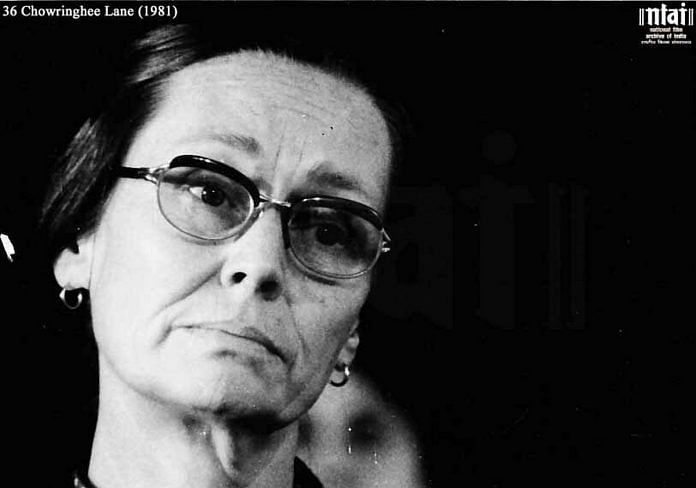New Delhi: Any Indian theatre actor worth their salt will tell you that you cannot overstate the importance of Prithvi Theatre in India’s cultural landscape.
The historic theatre, which celebrated its 50th anniversary last year, is not just a Juhu landmark, but a cultural icon that has birthed many greats of stage and screen, right from Amrish Puri to Naseeruddin Shah, Ratna Pathak Shah, Makarand Deshpande, Sunil Shanbag and more.
And if there’s anyone to thank for it, it’s actors Jennifer Kendal and Shashi Kapoor. The couple, apart from being cinematic greats themselves, poured their hearts and souls into Prithvi, making it the cultural hotbed it is today.
On her 35th death anniversary, ThePrint looks at the extraordinary life of Jennifer and her immense contribution to the world of theatre.
Born in England to Geoffrey Kendal and Laura Liddell on 27 February 1934, Jennifer grew up in India.
Her father was the head of the famous touring company, Shakespeareana, which would go across the country putting up Shakespeare plays in the 1940s and 1950s.
As a result, she and her sister Felicity Kendal spent a large part of their lives watching plays and understanding the nuances of stagecraft. Years later, she became an actor and would perform in her father’s company.
It was on one such tour in Kolkata in the 1950s, that she met Shashi Kapoor, who was then an actor in the travelling theatre company of his father, renowned filmmaker Prithviraj Kapoor, Prithvi Theatre. The two met, and instantly fell for each other.
A theatre actor first
Shashi Kapoor and Jennifer Kendal acted in many famed Merchant Ivory films: Shakespeare Wallah (which was partly based on Geoffrey’s company and work), Bombay Talkie (1970), Heat and Dust and more, though was uncredited in most of them. She was, after all, a theatre actor first, and would stick to stage productions more than films, unlike her husband, who went on to become a Bollywood star.
In 1978, Jennifer and Shashi decided to open Prithvi Theatre in Juhu, as a tribute to Prithviraj Kapoor. By that time, the couple had had three children — Kunal, Karan and Sanjana — who would grow up loving the theatre and Prithvi as much as their parents did.
Jennifer was deeply invested in it, as she worked closely with architect Ved Segan in planning, designing and building the tiny space and transforming it into a breeding ground for artistes.
The vision was to create a space for all kinds of theatre and its practitioners to work, experiment and grow.
“Prithvi Theatre is the heart of theatre in Mumbai. I think Jennifer meant it to be a gateway for the larger Indian audience, who may not be as exposed to theatre, to learn about and enjoy the global theatre scene,” actor Danish Husain, who regularly performs at the Juhu theatre, told ThePrint.
Husain, like many other actors, also appreciates the main sentiment that went into the making of Prithvi. Jennifer and Shashi wanted it to be a space where theatre artistes could grow, unhindered — a safe space.
“One of the main reasons Prithvi is so important, is that it is a physical space for the theatre community to come together and collaborate, no matter how big or small they may be,” he said, “Also, the rents are very low, even today, compared to other theatres, which is vital for the exposure and growth of struggling theatre companies and good theatre.”
Jennifer remained a trustee of Prithvi till her last day. She was always thinking of new initiatives and programmes to increase engagement in the 200-seater she called home.
Once she got involved in Prithvi, she even gave up acting for the most part, save a few roles in parallel films in the 1980s, like 36 Chowringhee Lane, The Far Pavilions, and Bengali film Ghare Baire.
Jennifer chose to make her family and the theatre her priorities, even though her love for acting never died.
“I never quit theatre as such. Had I known then that I was going to be away from the stage for so long, I would’ve reacted very badly. I would’ve been very disturbed,” she said in an interview.
“I’ve still got my hand towel, in which we used to have liquid paraffin to wipe off our make-up. It’s still in my make-up case. It’s just as I left it after the last show I did. I’ve always had this superstition: I felt that if I washed it, I would never act again,” she added.
However, the choice was taken away from her in 1983, when she was diagnosed with colon cancer. She spent most of her remaining days in England, with her family, but always thinking of her home in India.
In a 1982 interview with India Today magazine, Jennifer said, “I would be content if, after 30 years, there would be a small but great theatre around, and that some wonderful activity would always be on at Prithvi.”
Little did she know the small-but-great contribution she made to theatre in India: Not only showing so many the wonders of English drama, but also giving us a place theatre can call home.
Also read: A broken heart after his wife’s death ended Shashi Kapoor’s Bollywood career



